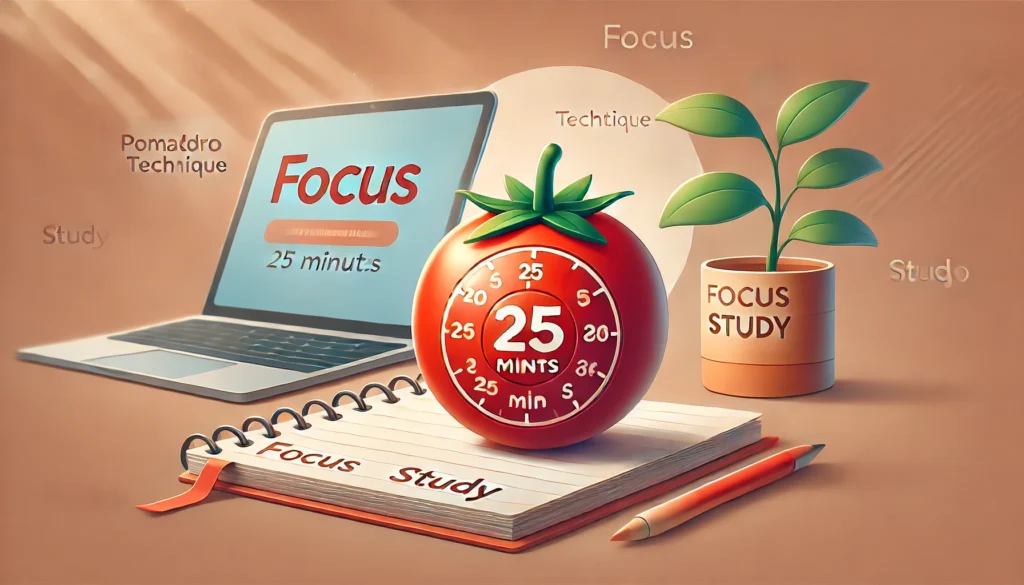Introduction
University life is a whirlwind of classes, assignments, exams, social activities, and often, part-time jobs. Feeling overwhelmed is practically a rite of passage, and many students find themselves struggling to keep up. That’s why time management for university students is not just a useful skill – it’s a survival skill. This guide is designed for students feeling under pressure.
This is designed to provide practical, actionable strategies to improve how you organize your schedule. We will discuss all the strategies ranging from basic study skills to techniques for overcoming procrastination as a university student.

Table of Contents
Why Time Management for University Students is Crucial
The transition from high school to university is often a significant jump in academic workload and expectations. Students are suddenly responsible for managing their own time, often with minimal direct supervision.
Poor time management leads to a cascade of negative consequences: increased stress, missed deadlines, lower grades, and even burnout. A study by the American College Health Association found that over 60% of college students reported feeling overwhelming anxiety, frequently linked to academic pressures and poor organization. Effective time management for university students isn’t just about getting things done; it’s about creating a sustainable, balanced, and successful academic life.

Common Time Management Challenges Faced by University Students
It’s easy to say “manage your time better,” but what are the specific hurdles students face? Identifying these challenges is the first step towards addressing them.
Procrastination, distractions, overcommitment are few challenges to name. Let’s explore in more detail.
Overcoming Procrastination as a University Student: Identifying the Root Causes
Overcoming procrastination as a university student is perhaps the biggest time management hurdle. It’s rarely about laziness; it’s often a symptom of deeper issues.
These issues might include fear of failure, perfectionism, or feeling overwhelmed by the task at hand. A study published in the journal Learning and Individual Differences found that procrastination is significantly correlated with higher levels of stress and lower academic performance.

Managing Distractions in the Digital Age
Constant notifications, social media, and the endless allure of the internet make focused work incredibly challenging. The digital age presents unique obstacles to effective time management for university students.
Our brains are constantly bombarded with stimuli. This makes deep, concentrated work more difficult.
The Struggle with Prioritization: What Really Matters?
University life often involves juggling multiple courses, each with its own set of deadlines and demands. Knowing how to prioritize tasks – distinguishing between what’s urgent and what’s truly important – is a vital study skill.
Many students struggle to say “no” to commitments. This results in having difficulty to meet up with deadlines.
Practical Time Management Strategies for University Students
Now that we’ve identified the challenges, let’s explore practical strategies. These actionable steps can improve your approach.
It is all about incorporating useful practices. It is about building study skills in your routine.
Planning and Scheduling: Your Roadmap to Success
A well-structured plan is the cornerstone of effective time management for university students. It’s not about rigid control; it’s about creating a framework for success.
Planning provides clarity. Planning helps in better execution.
Long-Term Planning: Mapping Out Your Semester
At the beginning of each semester, take the time to map out major deadlines for all your courses. Use a large calendar (physical or digital) to visualize the entire semester.
Break down large projects (like research papers or final exams) into smaller, manageable tasks. These tasks can be assigned with deadlines.
Weekly Planning: How to Manage Time as a University Student, Week by Week
Each week, create a more detailed schedule. This can be done effectively.
This schedule should include class times, study blocks, work hours, extracurricular activities, and even personal time. The key question is: how to manage time as a university student on a consistent, week-to-week basis? The answer lies in realistic planning and consistent review.

Daily Planning: Maximizing Your Productivity Each Day
Each morning (or the night before), create a to-do list for the day. Prioritize tasks based on importance and urgency.
Allocate specific time blocks for focused work, using techniques like time blocking (discussed later). It is helpful.
Using the Eisenhower Matrix to boost Productivity
The Eisenhower Matrix, also known as the Urgent-Important Matrix, helps you categorize tasks based on their urgency and importance. You can boost your productivity.
This allows you to focus on what truly matters and avoid getting bogged down in less critical activities. It is useful.
Effective Time Management Techniques
Beyond planning, specific techniques can dramatically improve your efficiency. These include time tested methods.
These methods can be used to improve focus.
The Pomodoro Technique: Focused Work in Short Bursts
The Pomodoro Technique involves working in focused 25-minute intervals (called “pomodoros”), followed by a short 5-minute break. This is effective.
After every four “pomodoros,” take a longer break (15-30 minutes). This technique leverages short bursts of intense focus to combat procrastination and improve concentration.

Time Blocking: Allocating Time for Specific Tasks
Time blocking involves scheduling specific blocks of time in your day for particular activities. Time blocking brings structure in life.
This includes not only classes and study time but also meals, exercise, and even leisure activities. Be realistic about how long tasks will take, and don’t overschedule yourself.
Eat the Frog: Tackling the Most Difficult Tasks First
The “Eat the Frog” technique, popularized by Brian Tracy, advocates tackling your most challenging or unpleasant task first thing in the morning. The idea is great.
This prevents procrastination and frees up mental energy for the rest of the day. It is also very effective.
Integrating Essential Study Skills for Optimal Time Management
Effective study skills are inextricably linked to time management for university students. You can’t manage your time well if you’re not studying efficiently.
Good study habits save the time. Good study habits avoid last minute rush.

Active Recall: Making Learning Stick
Active recall is the method to question and answer. Learning through this way help you retain the concept.
Instead of simply rereading your notes, test yourself frequently. This active retrieval strengthens memory and reduces the need for endless review.
Spaced Repetition: Reviewing Material at Optimal Intervals
Spaced repetition involves reviewing material at increasing intervals over time. Review is important.
This technique, supported by research in cognitive science, helps move information from short-term to long-term memory. It requires regular follow up.
Tools and Resources to Enhance Your Time Management
Leveraging the right tools can significantly streamline your time management efforts. This includes use of digital tools.
This may also include other tools.
Digital Tools and Apps
There are numerous apps designed to help with various aspects of time management. Explore for yourself.
Consider using calendar apps (Google Calendar, Outlook Calendar), to-do list apps (Todoist, Any.do, Microsoft To Do), note-taking apps (Evernote, OneNote, Notion), and focus apps (Freedom, Forest).

Analog Tools (Planners, Notebooks, etc.)
While digital tools are powerful, don’t underestimate the value of analog methods. This may be old method.
Many students find that physically writing down tasks and schedules helps them stay organized and committed. Physical method is also very useful.
Overcoming Procrastination as a University Student: Practical Strategies
Understanding the reasons is the part of solution. Actionable steps also help.
You need consistent effort to beat it.
Mindset Shifts to Combat Procrastination
Embracing a growth mindset, where you view challenges as opportunities for learning, can be incredibly helpful in overcoming procrastination as a university student.
Focus on progress, not perfection. Celebrate small victories to build momentum.
Seeking Support: When and How to Ask for Help
Remember, you don’t have to struggle alone. There are many people available.
Seeking help is a sign of strength, not weakness. There are resources available to support you.
Utilizing University Resources
Most universities offer a range of academic support services. These are really helpful.
These include academic advising, tutoring centers, writing centers, and counseling services. Take advantage of these resources; they’re there to help you succeed!
How Tutoring Can Improve Time Management Skills
Ethical tutoring services, like those offered by Scholarly Mentor, can provide personalized guidance and support. This support can be availed.
A tutor can support you in understanding difficult concepts, developing effective study skills, and staying accountable. This indirectly improves time management for university students by making your study sessions more efficient and reducing the time spent struggling with the material. Remember, the focus is on learning, not on having someone else do the work for you.

Case Studies: Real-Life Examples of Time Management Success
Let’s look at how real students have used these principles. They applied to overcome challenges.
These are real life examples. They provide good learning.
Case Study 1: From Overwhelmed to Organized - Sarah's Story
Sarah, a first-year student, felt completely overwhelmed by the workload in her engineering program. She was constantly behind on readings and assignments.
She implemented a weekly planning system, started using the Pomodoro Technique, and sought tutoring for her most challenging course. The result? Her grades improved, her stress levels decreased, and she found time for social activities.
Case Study 2: Beating Procrastination and Acing Exams - John's Journey
John, a history major, had a habit of procrastinating until the last minute, leading to all-nighters and poor exam performance. He felt low.
He learned to break down large assignments into smaller tasks, used active recall techniques for studying, and sought support from a tutor to clarify confusing historical concepts. By actively addressing his procrastination and improving his study skills, John significantly improved his exam scores and overall academic performance.

Effective time management for university students is not about magically finding more hours in the day; it’s about making the most of the time you have. It involves planning.
It’s about prioritizing, developing strong study skills, and overcoming procrastination as a university student. By implementing the strategies and techniques discussed in this guide, you can take control of your time, reduce stress, and achieve your academic goals. Remember, seeking academic support through ethical tutoring is a sign of strength and a valuable tool on your journey to success. Increased productivity is an outcome of the right approach.
Frequently Asked Questions (FAQs)

Balancing work and study requires careful planning. Create a detailed schedule that allocates specific time blocks for both work and study, prioritizing tasks based on deadlines and importance. Communicate your academic commitments to your employer, and seek support from your university’s academic advising or tutoring services if needed.
Key study skills that enhance time management include active recall, spaced repetition, effective note-taking, and breaking down large tasks into smaller, manageable steps. These techniques help you learn more efficiently, reducing the time you need to spend studying.
Overcoming procrastination as a university student requires identifying the root causes (fear of failure, perfectionism, feeling overwhelmed) and implementing strategies like setting realistic goals, breaking down tasks, using time management techniques (Pomodoro, time blocking), and seeking support from tutors or academic advisors.
Numerous tools can boost your productivity. Digital tools include calendar apps (Google Calendar), to-do list apps (Todoist), note-taking apps (Evernote), and focus apps (Freedom). Analog tools like planners and notebooks can also be highly effective.
Absolutely! Seeking help is a sign of strength, not weakness. Your university likely offers resources like academic advisors, tutoring centers, and workshops on time management and study skills. Don’t hesitate to utilize these resources.
Yes, ethical tutoring can indirectly improve your time management significantly. Tutors help you understand the material more efficiently, develop effective study skills, and provide accountability, all of which contribute to better time utilization and increased productivity.
Prioritization is key! Learn techniques like the Eisenhower Matrix to categorize tasks by urgency and importance. This will improve your overall learning strategy.

